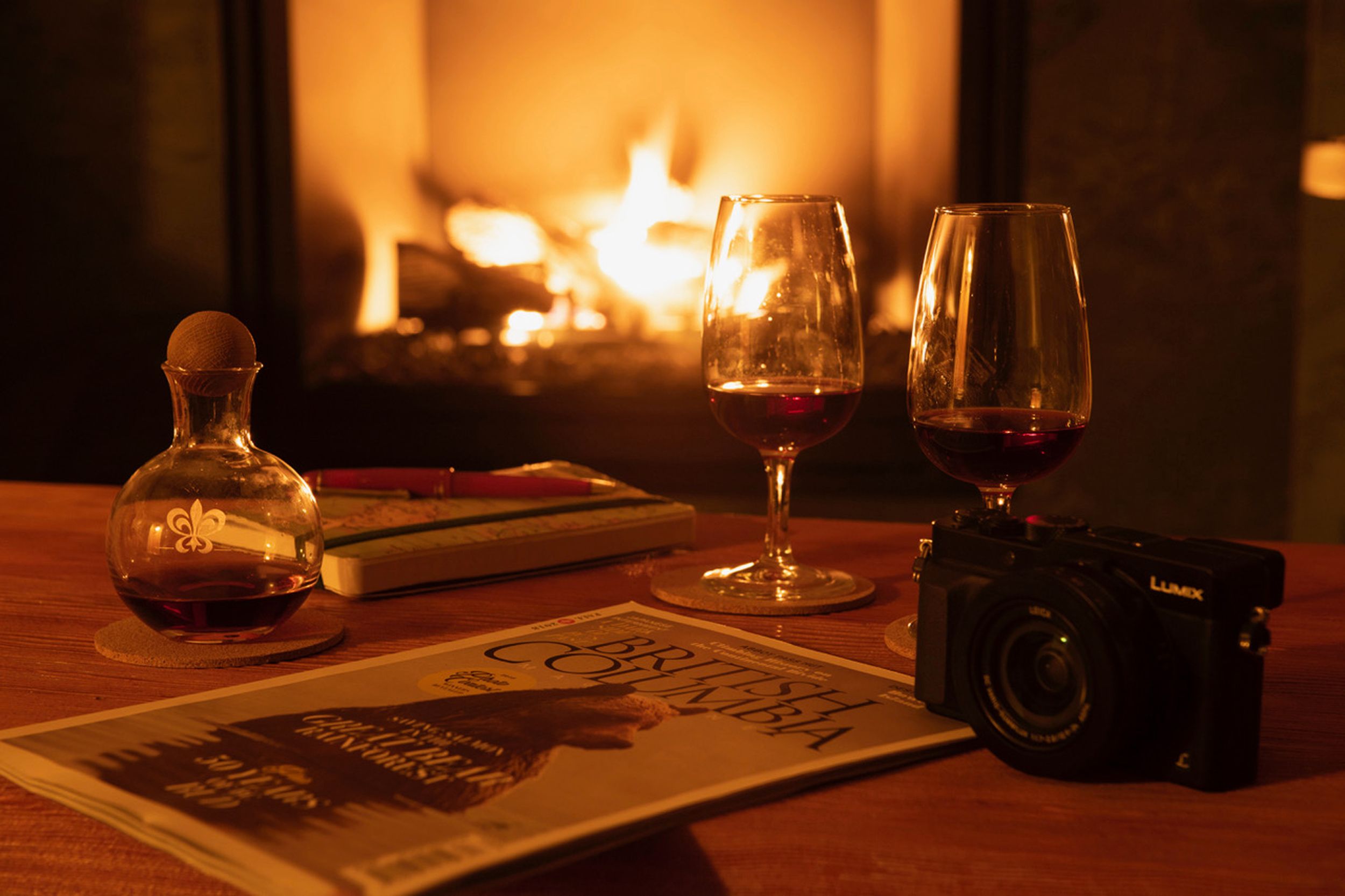A Flourishing Finish
It’s sad but true: in recent years, dessert wines have become the Rodney Dangerfield of the wine world. (For those who don't recall, Dangerfield was a comedian whose famous, self-deprecating line "I don't get no respect" became a popular cliché in the ’70s and ’80s.) With a few notable exceptions, such as Bordeaux darling Château d’Yquem or Hungary’s celebrated Tokaji Aszú, dessert wines get little, if any, respect. Even Port, once considered de rigueur to cap off any serious meal, has fallen on hard times. And as for icewine? A changing climate and rising grape prices have curtailed the once prized elixir’s production.
Yet on Vancouver Island, the appetite for dessert wines remains healthy. Here they truly run the gamut. Brimming with local character, they embrace myriad styles developed over several decades.
In the 1970s, like the Okanagan, Vancouver Island was home to a number of experimental plantings. Of 130 or more varieties trialed, the more successful formed the foundation of today’s industry. A number of original vines still survive, including a rare planting of Black Muscat at Blue Grouse Estate Winery.
Blue Grouse winemaker Bailey Williamson reckons you could probably trace the variety’s lineage “back to Ancient Mesopotamia and the birthplace of agriculture.” Specifically, Black Muscat is a red vinifera cross of Schiava Grossa and Muscat of Alexandria. Williamson says the variety can be challenging to grow. It tends to sprawl, perhaps in part due to the terroir, and “also doesn’t ripen to high sugars or contain much in the way of tannin.”
Due to limited supply, the winemaker decided the grape is best suited to making a drier, fortified wine and has adopted a solera program, making a barrel a year from 2012. That means, Williamson explains, “Black Muscat Fortified is non-vintage and will always have some of the first production in it from 2012,” also known as “The Spirit of The Blue Grouch”—aka Paul Brunner, who purchased the winery that year (though the winery recently sold to members of the Jackson family).
Leaning to Port
While Pinot Noir is becoming the more prevalent red grape on the Island, there’s also still no shortage of Marechal Foch around. In earlier days, it was favoured for its ability to ripen early—something that’s no longer much of an issue since the onset of climate change. “Foch” features in a number of popular, fortified Port-style wines. Often the spirit used comes from just up the road—and occasionally with some interesting twists.
With one eye on sustainability, Unsworth Vineyards takes a unique approach to making its Ovation dessert wine, made from 100% Marechal Foch. “A challenge with winemaking is that for every part of the process between fruit reception and bottling there’s always waste,” says Unsworth general manager Chris Turyk. “For instance, juice is often left over in hoses and filters. But instead of putting it down the drain, we keep it and send it to Nanaimo’s Arbutus Distillery. They send it back to us as spirit, which we use to fortify Ovation.”
The practice helps the winery’s septic system by keeping the pH in balance. Plus, “It’s a great way to save a few litres during winemaking; it also means we’re supporting a local business,” says Turyk. “This way we’re able to hold onto the juice, age the fortified wine in-barrel—and add to our bottom line.”
Like Blue Grouse, Unsworth produces Ovation also under a solera system, now in its 12th vintage. The grapes used are Cowichan Valley-grown Marechal Foch. And the resulting wine yields flavours of dried cherry, coffee, raisin and caramel. Turyk’s favourite food match? With bittersweet dark chocolate or, better still, with creamy, blue Abergavenny from Haltwhistle Cheese in nearby Duncan.
Tasting the wild side
Not every Island dessert wine is made with vinifera grapes. In fact, some impressive drops are made with uncultivated—as in wild—blackberries.
A perennial award winner, Rocky Creek’s wild blackberry is unusual because it’s neither fortified nor oak-aged, which allows the purity of the fruit to shine through. On the palate, this “adult blackberry juice” (as the winery dubs it) starts out seductively sweet and intensely fruity through to a dry finish, making it pretty versatile. Enjoy it as a substitute for cassis, mixed with sparkling wine in a Kir Royal, or as a very respectable Port alternative. Even though it’s unfortified, it still clocks in at a heady 16% alcohol by volume (ABV). By comparison, authentic Port has to be a minimum of 17.5%.
When winemaker Brent Rowland arrived at Averill Creek Vineyard in 2018, he decided to take the winery’s nod to traditional Tawny Port—also made with wild blackberries—in a new, far more local direction. Rowland steeped it with a blend of cedar, Cowichan-grown tea leaves and tea blends from Westholme Tea, cardamom and pink peppercorn to come up with a playful Vermouth-styled apéritif he feels is more indicative of the Pacific Northwest. A different twist, this versatile drop may also be enjoyed after the meal with sharp cheeses or desserts featuring dried fruit or baking spices.
Sipping a classic
 Ultimately, no parade of dessert friendly wines would be complete without Venturi-Schulze’s Brandenburg no. 3. Over the years, it’s become the Island’s most celebrated in its class, produced almost since the winery was established in the mid-1990s.
Ultimately, no parade of dessert friendly wines would be complete without Venturi-Schulze’s Brandenburg no. 3. Over the years, it’s become the Island’s most celebrated in its class, produced almost since the winery was established in the mid-1990s.
“We’ve always made it from Madeleine Sylvaner, which is often overlooked, and a fantastic cool-climate variety,” says co-owner Marilyn Schulze. She adds that Brandenburg no. 3 (named for J.S. Bach’s famous and multi-layered concerto) is probably “our next best seller after our Brut and Pinot Noir.” What’s important is that “despite being sweet, the wine isn’t cloying because it has such great acidity. And that,” she adds, “is the key to any great dessert wine, whether it’s Vin Santo or Trockenbeerenauslese.” As far as what to drink it with? This classic dessert wine goes with just about anything, from foie gras to creme brulée with orange hazelnut biscotti.
One place where you will always find a glass of dessert wine or Port is at Tofino’s stunning, oceanside Wickaninnish Inn (pictured above), where guests enjoy a welcoming decanter awaiting in their room—the perfect companion come rain or shine. Any Port in a storm, you could say.
| Tasting Notes |
|
Blue Grouse Fortified Black Muscat NV |
|
Unsworth Vineyards Ovation |
|
Rocky Creek Wild Blackberry |
|
Averill Creek Vermouth NV |
|
Venturi-Schulze Brandenburg No. 3 2013 |





